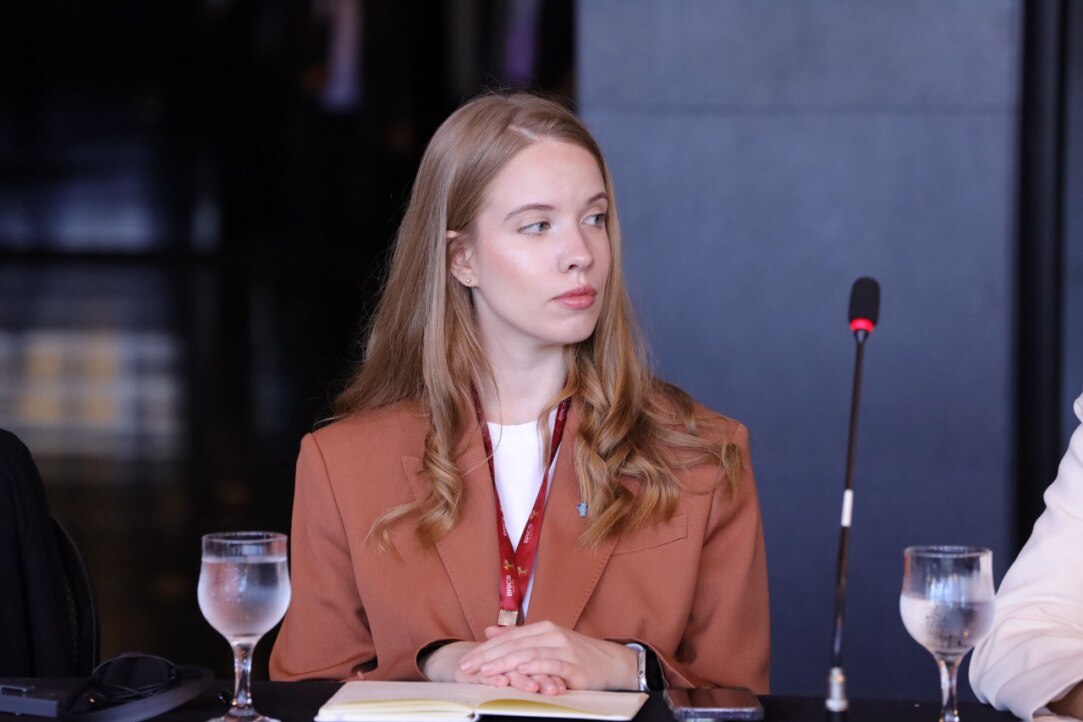Sustainable Development and Global Challenges: HSE GSB PhD Student at the BRICS Youth Summit in Brazil

On the Summit and first impressions
The VII BRICS Youth Energy Summit is an annual event that brings together young professionals under the age of 35 to discuss energy transition, decarbonization, and sustainable development. The summit was large in scale and serious in tone: it included leaders from the global energy sector and representatives of government bodies, which highlighted the importance of the agenda and a commitment to meaningful change. A key element of the summit was professional networking: after the plenary sessions, participants had the opportunity to move into targeted discussions. Thanks to this, I was able to speak with representatives from Rosatom, hydropower experts from India, specialists in alternative energy from the UAE, and many others. We exchanged contacts, and later they helped me focus my dissertation research through expert consultations. This helped clarify my direction and expand the practical context of my project.
What impressed me most were the technical site visits. We visited the Brazilian National Power System Operations Center and the Agricultural Biofuel Research Corporation. The opportunity to ask questions directly to developers and engineers offered insight into energy processes not only from a theoretical but also a practical perspective — in particular, I learned how Brazil addresses the issue of electricity losses during transmission, which is a key concern in my research on alternative energy in Russia.
Research focus and participation in discussions
My participation in the summit was tied to discussions held as part of the event. The topics closely aligned with my academic interests: during my master’s studies, I explored the Russian hydropower sector, and my PhD research focuses on the use of alternative energy sources by businesses to reduce emissions across supply chains. We discussed the development of hydropower, the specifics of alternative energy sources, the centralization of power grids, and regulatory mechanisms in BRICS countries.
One of the important questions raised was the actual “greenness” of hydropower. In Russia and elsewhere, the environmental impact of large hydropower plants is being reassessed: research shows that reservoir construction and concrete use may lead to additional emissions. Field studies, including those in Russia, are currently underway to provide accurate assessments of these processes.
The relevance of decarbonization is growing in Russia as well, with new legislation for manufacturers being developed at the national level. This is encouraging businesses to find ways to reduce emissions, including switching to alternative energy sources that comply with international carbon footprint standards. These topics were widely discussed at the summit and drew interest from international participants.
During discussions, I was asked questions about the types of hydropower plants in Russia, their social impact on nearby communities, and the level of monopolization in the sector. We concluded that in BRICS countries, most energy projects — regardless of type — require government involvement, which creates an additional barrier for companies seeking to “green” their energy use.
The role of HSE GSB in developing research interests
My academic journey in this field began in the “International Management” master’s program at HSE GSB. The international focus of the program, the exchange semester in Paris, and the intercultural learning environment laid a strong foundation. My academic advisor, Mikhail Eduardovich Akim, played a key role — he helped me establish my first professional contacts with representatives of RusHydro and the Russian Academy of Sciences, which sparked my interest in sustainable energy development. I am now working on my PhD under the supervision of Sergey Pavlovich Kush. With the support of both advisors, I am able to develop my research both academically and practically, and receive valuable recommendations for participating in major international events such as the BRICS summit.
Even during the gap year I took after completing my master’s, my cooperation with Mikhail Eduardovich Akim continued: we participated in international conferences together, discussed approaches to evaluating hydropower impacts, and exchanged ideas for future research. He was the one who introduced me to Sergey Pavlovich Kush as a potential PhD candidate. Mikhail Eduardovich recommended me as a summit participant, and Sergey Pavlovich supported the initiative, recognizing its importance for my research.
Advice for students and PhD candidates
To students who want to present at international conferences, I would first recommend deepening your expertise. This allows you to engage in meaningful discussions rather than focusing on basic questions. It is also important to stay open to new ideas: don’t be afraid to apply, take part in projects, and explore new research methods. Even if you feel your chances are slim — apply anyway. The key is to choose a topic you truly believe in. Everything else will follow if you have a passion for research and a sense of curiosity.
